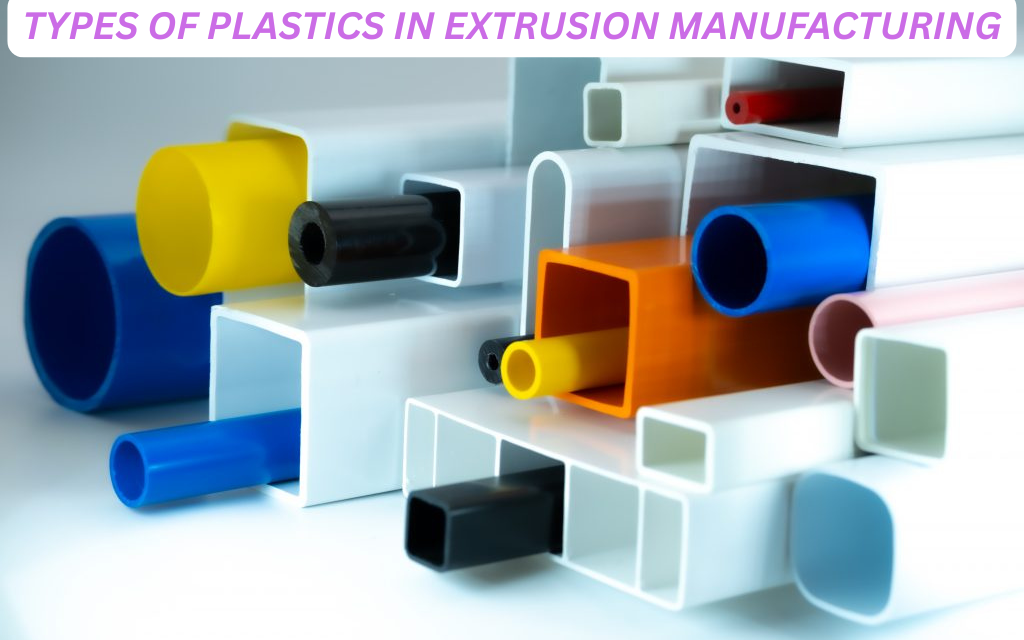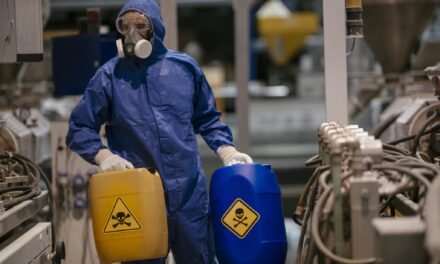Most Commonly Used Plastics in Extrusion Manufacturing
Plastic extrusion relies on a variety of thermoplastics that can be melted and reshaped without degrading. The choice of plastic depends on factors such as durability, flexibility, heat resistance, and application requirements. Below are the most commonly used plastics in extrusion manufacturing:
1. Polyethylene (PE)
A widely used plastic known for its flexibility, durability, and chemical resistance.
- High-Density Polyethylene (HDPE) – Used for pipes, bottles, and industrial applications due to its strength and chemical resistance.
- Low-Density Polyethylene (LDPE) – Common in plastic bags, films, and tubing due to its flexibility and transparency.
- Linear Low-Density Polyethylene (LLDPE) – Used for stretch films and packaging due to its impact resistance.
Applications: Pipes, plastic bags, films, packaging, wire coatings.
2. Polypropylene (PP)
A lightweight and heat-resistant plastic with excellent chemical resistance.
- Commonly used in food containers, medical components, and automotive parts.
- Offers good fatigue resistance, making it ideal for hinges and flexible packaging.
Applications: Straws, food containers, medical tubing, automotive trims.
3. Polyvinyl Chloride (PVC)
A rigid or flexible plastic known for its strength and weather resistance.
- Rigid PVC (uPVC) – Used for construction materials such as pipes, window frames, and siding.
- Flexible PVC – Used for cables, medical tubing, and flexible films.
Applications: Pipes, window profiles, electrical conduits, medical tubing.
4. Polystyrene (PS)
A lightweight plastic used for insulation and packaging.
- General-Purpose Polystyrene (GPPS) – Used for clear rigid sheets and packaging.
- High-Impact Polystyrene (HIPS) – Offers better impact resistance for household items and appliances.
Applications: Disposable cups, food trays, insulation panels.
5. Acrylonitrile Butadiene Styrene (ABS)
A strong, impact-resistant plastic with good heat and chemical resistance.
- Used in automotive components, electronic housings, and consumer goods.
- Provides a glossy finish and excellent durability.
Applications: Car dashboards, appliance housings, protective headgear.
6. Polycarbonate (PC)
A tough, transparent plastic known for its impact resistance.
- Commonly used as a glass substitute in safety applications.
- Offers UV resistance and optical clarity.
Applications: Safety goggles, LED light covers, medical devices.
7. Thermoplastic Elastomers (TPEs)
A flexible, rubber-like plastic with excellent elasticity.
- Used for soft-touch grips, footwear, and automotive parts.
- Provides high durability and resistance to weather conditions.
Applications: Seals, grips, flexible tubing, gaskets.
Conclusion
Plastics like polyethylene, polypropylene, PVC, and ABS dominate extrusion manufacturing due to their versatility and durability. The choice of plastic depends on the required properties, such as flexibility, impact resistance, and heat tolerance.
Hashtags
#PlasticExtrusion #ExtrusionManufacturing #Thermoplastics #PolymerProcessing #PlasticsIndustry #CustomExtrusion #ExtrudedPlastics #Polyethylene #HDPE #LDPE #PlasticPipes #FlexiblePackaging #FilmExtrusion #BlowFilmExtrusion #Polypropylene #PPExtrusion #LightweightPlastics #FoodPackaging #MedicalPlastics #RigidPackaging #PVCExtrusion #RigidPVC #FlexiblePVC #PipeExtrusion #ConstructionPlastics #VinylPlastics #Polystyrene #HIPS










